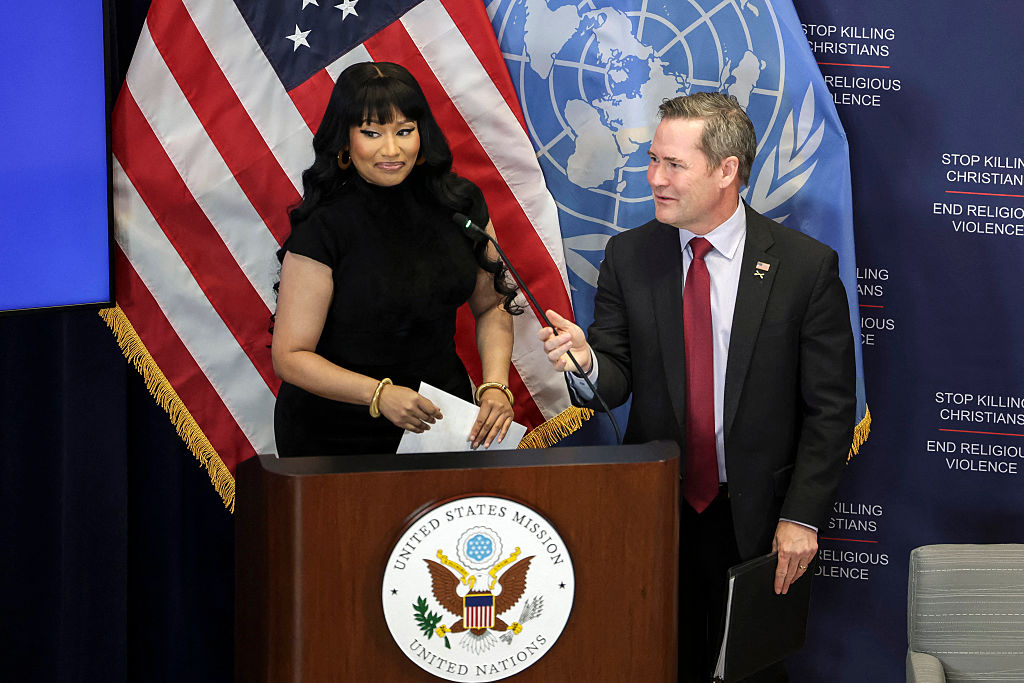Mainline Protestantism, once a primary cultural and political pillar of American life, is in freefall. Traditional Protestant denominations – Episcopalians, Methodists, Presbyterians, Lutherans and others – now account for less than 11 percent of the population, down 40 percent since 2007, according to the Pew Religious Landscape Study.
The Evangelical Lutheran Church in America (ELCA), the main Lutheran body in the United States, had more than five million members when it was formed in 1988. That number now stands at fewer than three million. By 2050, the ELCA projects that membership will have dropped to a mere 67,000. At that point, American Lutheranism will virtually cease to exist as a denomination – soon to be joined, no doubt, by other stalwarts of the Reformation.
You don’t need to sift through data sets to see that traditional Protestantism is dying. Go to any mainline Protestant church in rural America and you will see the human side of this demographic doom-loop. Most of the congregations are elderly and small in number. It’s easy to imagine that many of them will be gone in a generation.
How has this come to pass? The decline has been variously ascribed to shifting social norms since the 1960s, inroads made by fundamentalist Evangelical churches and a culture of consumerism that has turned people away from the transcendental. But much of the decay has come from within. A significant reason for traditional Protestantism’s decline has been its leadership’s growing estrangement from its lay members.
Time and again, ministry to the faithful took a back seat to left-wing orthodoxy
Nowhere is this more apparent than in the seminaries and divinity schools, where Protestant denominations train their ministers and administrators. I served for seven years on the board of trustees of the United Lutheran Seminary (ULS) in Philadelphia and Gettysburg, Pennsylvania – and what I saw was a clique of church leaders determined to put as much distance as possible between themselves and the people in the pews. In these institutions, social justice virtue-signaling was the order of the day. The more prosaic concerns of Sunday worshippers – what Christian teaching might say about job losses, broken families, the opioid epidemic – not so much.
Only once during my tenure did the seminary leadership give any serious consideration to dwindling congregation numbers, and what role the ULS might play in reversing this trend. This took the form of a two-hour presentation by a statistician who outlined the scale of the decline in both church attendance and seminary enrollment – particularly among men. During the session, one faculty member helpfully pointed out that perhaps this drop in attendance wasn’t so bad, since it might be offset by growth in developing countries.
Time and again, ministry to the faithful took a back seat to left-wing orthodoxies. Emblematic of this trend is the ULS’s current president, Guy Erwin. Erwin possesses a hard-edged, identitarian worldview which holds that the nation’s legacy of racial conflict remains unresolved because of white resistance. The idea of collective white guilt has been a persistent theme in his lectures and newsletters.
Before he was named ULS president, Erwin had been the Lutheran bishop of Los Angeles. Erwin, a Harvard- and Yale-educated academic who is a member of the Osage Nation and openly gay, encapsulates the intersectionality that is highly prized on the left – and, increasingly, within mainline Protestantism.
He decried the actions of the January 6 rioters, referring to them as “domestic terrorists” – but was noticeably silent on the Black Lives Matter conflagrations of 2020 that laid waste to many city centers and claimed at least 25 lives. Erwin has also said that he prefers to celebrate Juneteenth over July 4 because of the nation’s history of racial discrimination.
After taking over at ULS in 2020, Erwin set about remaking the seminary. He promised institution-wide racial sensitivity training and a boost to hiring based on diversity, equity and inclusion. As part of that initiative, he hired an academic dean who, in a video posted on the ULS website, described the American economy as a “plantation.”
“Now, as always, the main work is for those who have perpetuated and benefitted from the systems of oppression – those who enjoy white privilege – to break down the patterns of white supremacy they have sustained,” Erwin said in a June 2022 letter to the ULS community. In a lecture in September 2021, he said: “So much of the bad white reaction to the greater equality of African Americans has been because of anxiety that they would lose something in the process, or I think even deeper what they have, they have unjustly.”
The board recently extended Erwin’s contract for five years. The Revd Peter Boehringer, who was board chairman when Erwin was named president, told me that Erwin’s political views enjoyed wide support – and even implied that they were divinely inspired. “We who have listened to Dr. Erwin carefully and in context know that he strives to speak and write in ways that articulate a clearly Lutheran, intentionally inclusive and explicitly anti-racist understanding of our common faith,” Boehringer wrote in an emailed statement.
The ULS was formed in 2018 through the merger of the Lutheran Theological Seminary of Philadelphia and its sister seminary in Gettysburg. It was something of a shotgun wedding. The seminaries had been long-standing rivals for primacy in the world of Lutheran theology. At the time of the merger, both were experiencing financial problems and declining enrollment. The hope was that the merger would bring strength in numbers.
But it didn’t take long for progressive dogmas to assert control over this new institution. The board of trustees hired Theresa Latini – a Presbyterian minister and academic – as the first president of the combined seminary. Several months into her tenure, reports emerged that, as an undergraduate 20 years earlier, Latini had been head of a conservative Presbyterian group called One to One. The group advocated for conversion therapy for gays and lesbians. During the hiring process, the seminary officials who had recruited Latini had advised her to conceal this aspect of her background. For her part, Latini had long since turned away from those views and was now a passionate advocate for LGBTQ people in the church.
Nevertheless, these revelations provoked a ferocious response. Students at Harvard Divinity School wrote to the board to express their “rage” at Latini’s past. Opponents called her, among other things, a Nazi and a KKK adherent. There were persistent demands that she resign or be fired.
I was shocked by the viciousness of the response and advocated for Latini to stay. When she had led One to One, she was a young undergraduate apparently under the influence of older conservative church leaders. She had long since renounced those ideas. Yes, she should have disclosed the full details of her past. But Latini argued, credibly in my view, that she had reason to fear for her safety should her past association with One to One become widely known – a sense that the public furore seemed to vindicate.
The ULS was unmoved. A narrow majority of the board voted to fire Latini. It then moved to repair relations with the gay community by partnering with an LGBTQ advocacy group called Reconciling in Christ. As part of this initiative, the ULS named Erwin to its board.
Two years later, in the summer of 2020, Erwin was named president of the ULS. But problems continued to plague the seminary – which was under mounting financial and legal pressure. The board learned that the seminary, under a previous administration, had been paying some of its operating costs with restricted endowment funds. This was a potential violation of Pennsylvania law.
To avert a criminal probe, the seminary acted to restore the misappropriated funds by selling off faculty housing on its Philadelphia campus. It also entertained plans for extensive commercial housing and retail development there. These plum property deals – along with a fortuitous $30 million bequest in 2022 – have done much to repair the ULS’s balance sheet, which is now approaching an astounding $100 million in total endowment.
The liturgy is the same, but the beliefs it once represented have been turned upside down
It’s an apt symbol of the current state of mainline Protestantism. Hemorrhaging members and the goodwill of their congregants, these bodies nevertheless remain rich in real-estate assets and bequests – mostly from elderly donors who seem unaware of the church’s leftward tilt. The liturgy, pomp and frockery are still the same, but the beliefs that they once represented have been turned upside down. Many of the gorgeous buildings that grace their leafy campuses are largely empty. Hollowed out by progressive dogmas, these institutions risk becoming little more than Potemkin villages.
Seven years spent on the ULS board has convinced me that the leaders of mainline Protestant denominations are whistling past the graveyard. Much like the Democratic party, the C-suites of these organizations are clinging to a set of woke dogmas that have now been soundly rejected by the American people.
According to figures from the Pew Research Center, 58 percent of mainline Protestants voted for Donald Trump last year. Despite this, the attitude of mainline church leadership toward MAGA has been one of full-blown resistance. This reached its zenith in January when the Episcopal Bishop for Washington, DC, Mariann Budde, lectured Trump on the need to be merciful to migrants and the LGBTQ community during the traditional post-inauguration sermon given at the National Cathedral.
Budde has long been an anti-Trump partisan. In 2020, she denounced the President for supposedly having Lafayette Square cleared of Black Lives Matter protesters so he could pose for a tacky photo hoisting a Bible. In my little country church in a Pennsylvania Dutch region outside Philadelphia, our pastor fulminated in an internet post about this alleged act of sacrilege. Half the congregation – Trump supporters all – resigned in protest.
That same summer, Erwin released a statement decrying the police shooting of Jacob Blake, a black man, in Kenosha, Wisconsin – an incident that triggered days of rioting resulting in $50 million in damages. “Once more we are confronted with the deadly realities of racism in our land and our hearts ache again. How long, Oh Lord, how long?” he wrote in his ULS newsletter.
Of course, neither of these incidents were as clear-cut as Budde and Erwin made them out to be. But then that’s typical of the leaders of mainline Protestantism, who are doggedly hostile to the values of much of their flocks – including the way they vote. Is it any surprise, then, that many Sunday worshippers are, in turn, voting with their feet?
This article was originally published in The Spectator’s August 2025 World edition.























Leave a Reply